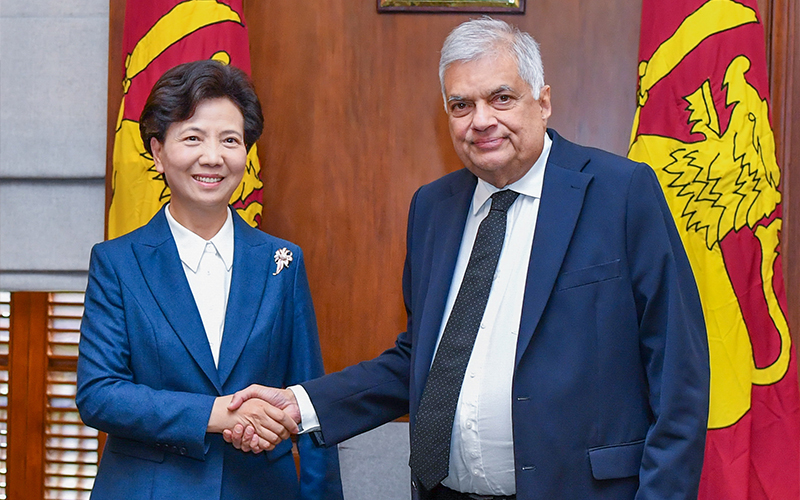Colombo calling Beijing: ready for Phase 2 of the Belt and Road Initiative
Sri Lanka is increasingly tying its fragile economy to China. After the debt agreement with the Export-Import Bank of China, Sri Lankan President Wickremesinghe said he was ready to expand the direct corridor with China bypassing India. Xi Jinping’s special envoy, State Counsellor Shen Yiqin, used her visit to the island to "lay out” China’s cards.
Colombo (AsiaNews) - Sri Lanka is set to launch Phase 2 of the Belt and Road Initiative (BRI) with China, starting with the existing China-Myanmar Economic Corridor (CMEC), to include the island.
Sri Lanka’s economic policy aims to have a direct route to China, bypassing current trade links involving Bangladesh, China, India, and Myanmar (BCIM), which are currently stalled due to political tensions between China and India.
In Colombo Chinese President Xi Jinping's special envoy, State Counsellor Shen Yiqin, met with Sri Lankan President Ranil Wickremesinghe on Monday to “lay out” China’s cards.
Shen’s visit follows the recent tête-à-tête between Wickremesinghe and Xi in Beijing, aimed at consolidating bilateral relations.
Analysts believe that this visit is of utmost importance for the country's economic future.
On 12 October, Sri Lanka reached an agreement with the Export-Import Bank of China to cover about US$ 4.2 billion of the country's outstanding debt.
Sri Lanka is currently trying to finalise a plan with its creditors to secure additional aid from the International Monetary Fund (IMF) to pursue its economic recovery.
Although China has decided to remain an observer during debt restructuring talks, it will be one of the crucial players for the future of the country's economy.
During his meeting with Shen, President Wickremesinghe expressed Sri Lanka's aspiration to increase cooperation with China in other fields, like tourism, agriculture, and sports, stressing that the Hambantota international port – under a 99-year lease to China – and Colombo Port are currently ready to expand business between the two countries.
For its part, China is “prioritising” the extension of the China-Myanmar Economic Corridor (CMEC) to Sri Lanka. Indeed, Mr Wickremesinghe noted that his country is “prepared to embark on the second phase of the initiative, which is expected to make a more substantial economic contribution.”
Sri Lankan Prime Minister Dinesh Gunawardena also met with State Councillor Shen, highlighting the vast potential to expand China-Sri Lanka economic cooperation. He also noted that Sri Lanka values China's investments in agriculture, renewable energy, education, and infrastructure.
“During the meeting, the president stressed the need to maintain the Indian Ocean as a freely navigable and peaceful region, free from global geopolitical rivalries,” political analysts Sachintha Tennakoon and Medhavi Attygalle told AsiaNews. “Yet, the development of the BRI points instead to China's intention to strengthen its influence in South Asia.”







.png)










